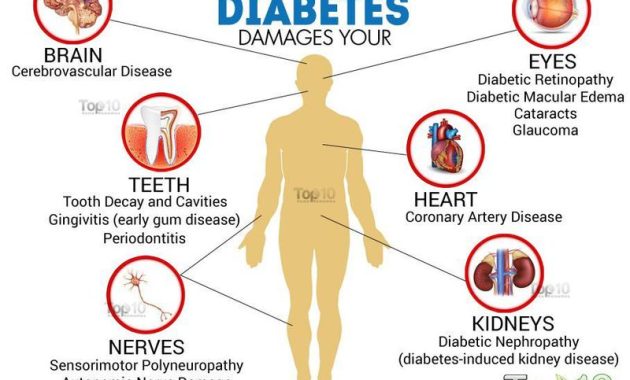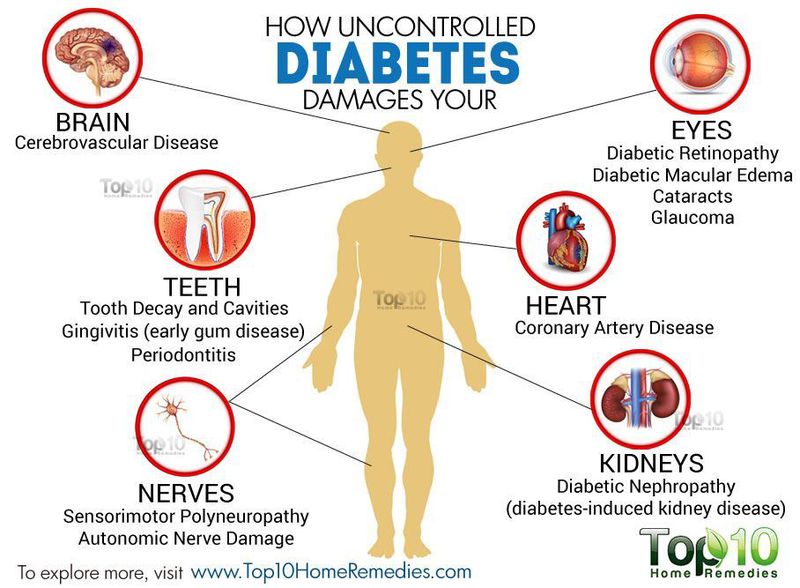
How to Beat Diabetes: Unveiling the Hidden Strategies Doctors Often Overlook
Diabetes, a chronic metabolic disorder, affects millions worldwide. It is characterized by elevated blood sugar levels. The conventional approach often focuses on medication and lifestyle changes. However, many doctors may not fully explore all available strategies. These strategies could significantly impact the management and even reversal of diabetes. This article delves into the often-overlooked aspects of diabetes management. It provides insights into how to beat diabetes using strategies often not discussed.
Understanding the Diabetes Landscape
Diabetes encompasses several types. Type 1 diabetes is an autoimmune condition. It causes the body to attack its insulin-producing cells. Type 2 diabetes is the most common form. It is often linked to lifestyle factors. These factors include obesity, inactivity, and poor diet. Gestational diabetes occurs during pregnancy. Prediabetes is a condition where blood sugar levels are higher than normal. But not high enough to be diagnosed as diabetes.
Conventional treatment typically involves medication. This includes insulin, metformin, and other drugs. It also involves dietary modifications. These modifications focus on reducing carbohydrate intake and increasing fiber. Exercise is also a key component. Regular physical activity helps improve insulin sensitivity. However, many people find these approaches insufficient. Or they experience side effects from medications. This is where the less-discussed strategies come into play, offering additional support. They can help one learn how to beat diabetes.
The Insulin Resistance Factor
Insulin resistance is a cornerstone of type 2 diabetes. It occurs when the body’s cells become less responsive to insulin. This hormone is responsible for transporting glucose from the blood into cells for energy. When cells resist insulin, glucose builds up in the bloodstream. This leads to high blood sugar levels. Several factors contribute to insulin resistance. These include genetics, obesity, and a sedentary lifestyle. Diet plays a crucial role. Diets high in processed foods and added sugars can exacerbate the problem.
Doctors often focus on lowering blood sugar levels. They might overlook strategies that address the root cause. Addressing insulin resistance is key to how to beat diabetes. This can involve dietary changes. This includes a focus on whole, unprocessed foods. It also includes regular exercise and stress management. These actions can improve insulin sensitivity and help the body use glucose more effectively.
Dietary Strategies Beyond Carbohydrate Restriction
While reducing carbohydrate intake is crucial, the focus should extend beyond this. The quality of carbohydrates matters. Choose whole grains, vegetables, and fruits over refined grains and sugary drinks. Fiber-rich foods are essential. They slow down glucose absorption. This helps prevent blood sugar spikes. Protein and healthy fats also play vital roles. Protein helps stabilize blood sugar levels. Healthy fats support overall health. They also promote satiety.
Certain foods have specific benefits. Cinnamon has been shown to improve insulin sensitivity. Vinegar can help reduce blood sugar spikes after meals. Berries are rich in antioxidants and low in sugar. They are an excellent choice for people with diabetes. The key is to create a balanced diet. It should be rich in nutrients. This diet supports overall health and helps manage blood sugar levels. This is a key part of how to beat diabetes.
The Importance of Exercise and Movement
Regular physical activity is a powerful tool for diabetes management. Exercise improves insulin sensitivity. This allows the body to use glucose more effectively. It also helps with weight management. Weight management is a key factor in controlling blood sugar. Both aerobic and resistance exercises are beneficial. Aerobic exercise, like walking or running, helps lower blood sugar levels. Resistance training, like weightlifting, builds muscle mass. Muscle mass helps improve insulin sensitivity.
Even small amounts of movement can make a difference. Aim for at least 30 minutes of moderate-intensity exercise most days of the week. Incorporate movement into your daily routine. Take the stairs instead of the elevator. Walk during your lunch break. Stand up and move around every hour. Consistency is key. Find activities you enjoy. This will make it easier to stick to your exercise plan. Regular exercise is a vital part of how to beat diabetes.
The Role of Stress Management
Chronic stress can negatively impact blood sugar control. It triggers the release of cortisol. Cortisol is a stress hormone. It can increase blood sugar levels. Stress can also lead to poor lifestyle choices. These choices include unhealthy eating and lack of exercise. These choices can worsen diabetes.
Effective stress management techniques are crucial. These techniques include meditation, yoga, and deep breathing exercises. Spending time in nature can also help reduce stress. Prioritize sleep. Aim for seven to eight hours of quality sleep each night. Sleep deprivation can increase stress levels. It also affects blood sugar control. Finding healthy ways to cope with stress is essential. It is another key component of how to beat diabetes.
Supplements and Natural Remedies
Certain supplements and natural remedies may offer additional support. Always consult with a healthcare provider before starting any new supplements. Some supplements have shown promise in managing blood sugar levels. These include berberine, alpha-lipoic acid, and chromium. Berberine has been shown to improve insulin sensitivity. Alpha-lipoic acid may help reduce nerve damage. Chromium can improve glucose metabolism. Omega-3 fatty acids can also support overall health. They can also reduce inflammation, which can worsen diabetes.
Herbal remedies, such as ginseng and fenugreek, have been used traditionally. They are used for diabetes management. However, more research is needed to confirm their effectiveness. It is important to choose high-quality supplements. Look for products from reputable brands. Always follow the recommended dosage. Supplements are not a replacement for medication or lifestyle changes. They should be used as part of a comprehensive approach. This approach helps one learn how to beat diabetes.
The Importance of Regular Monitoring
Regular blood sugar monitoring is essential. It helps track the effectiveness of your treatment plan. Use a glucose meter to check your blood sugar levels regularly. Check before meals, after meals, and at bedtime. Keep a log of your blood sugar readings. This log is useful to identify patterns. It also helps you to adjust your diet, exercise, and medication. If needed.
Hemoglobin A1c (HbA1c) tests provide an average of your blood sugar levels over the past two to three months. Regular HbA1c tests are important. They help you monitor your long-term blood sugar control. Work with your healthcare provider. They can create a personalized monitoring plan. This plan is based on your individual needs. Regular monitoring is a crucial aspect of how to beat diabetes.
The Power of Patient Education and Support
Education and support are critical for managing diabetes. Learn as much as you can about the condition. Understand the impact of food, exercise, and stress. Join a diabetes support group. Connect with other people who have diabetes. Share experiences and learn from each other. Work with a certified diabetes educator (CDE). They can provide personalized guidance and support. They can teach you how to manage your condition effectively. The more you know, the better equipped you will be. You will be able to manage your diabetes and improve your health. This will help you learn how to beat diabetes.
The Doctor’s Perspective and Collaboration
While this article highlights strategies doctors often overlook, collaboration is key. Maintain regular communication with your healthcare provider. Share your concerns and ask questions. Discuss the strategies you are implementing. Make sure they are safe and appropriate for you. Seek the advice of specialists. These include endocrinologists, dietitians, and exercise physiologists. They can provide expert guidance. Work together as a team. This team can help you create a comprehensive diabetes management plan. This plan can help you learn how to beat diabetes.
Conclusion: Taking Control of Your Health
Diabetes is a serious condition. It requires a proactive approach. This approach involves medication and lifestyle changes. But also includes strategies often overlooked by doctors. By addressing insulin resistance, making dietary changes, and prioritizing exercise and stress management, you can take control of your health. Consider using supplements and natural remedies. Always consult with your healthcare provider. Education, support, and regular monitoring are essential. Remember, learning how to beat diabetes is a journey. It is a journey that requires dedication and perseverance. But with the right strategies and support, you can improve your health and well-being.
[See also: Related Article Titles]

